by AMIT ROY
AUTHOR Vikram Seth has revealed he was “anxious” about allowing the BBC to adapt A Suitable Boy, but was reassured when he learned that the script would be written by Andrew Davies and the six-part TV version of his mega novel directed by Mira Nair.
On Monday (12), the BBC announced that the lead role of Lata Mehra would be played by a 22-year-old Indian newcomer, Tanya Maniktala. She admitted she was “in a daze” and trying to understand her character and “the complexities of her reality”.
Meanwhile, two Bollywood stars, Ishaan Khatter (Beyond the Clouds, Dhadak) and Tabu (The Namesake, Life of Pi, Andhadhun) will be part of the 100-strong cast. They have been cast as the “the wayward Maan” and the “beautiful courtesan Saaeda Bai”, respectively.
Seth, who is an exacting author, explained: “It was with some anxiety that I agreed
to my book being put on the screen, but I’m glad I did. With Andrew adapting and Mira
directing, I feel my story is in safe yet inspiring hands.
“We all passionately believed that the series should be filmed in India with an Indian
cast, and we have got great locations and wonderful actors. I am confident they will bring my characters brilliantly to life.”
Davies had the daunting task of adapting one of the longest novels in the English language
– A Suitable Boy, containing 591,552 words and running to 1,349 pages.
In essence, it tells the story of a widow, Mrs Rupa Mehra, searching for a suitable husband for her increasingly feisty 19-year-old daughter, Lata.
The novel is set in 1951-52, against the background of a newly independent India heading for its first general election.
Davies is known for adapting such novels as Pride and Prejudice, War & Peace, and Les Misérable for television. Most recently, he has been given the task of adapting Jane Austen’s unfinished Sanditon.
Seth and Nair helped him with adapting A Suitable Boy, which has the advantage of containing a great deal of dialogue which can be lifted straight from the page.
“I am truly thrilled to be chosen by Vikram Seth to adapt his masterpiece A Suitable
Boy for the screen,” Davies said. “It’s a charming, almost Austenesque story, with a
delightfully relatable heroine, set against the turbulent background of India in the years following partition. It has been a total joy to work on, and I hope that audiences will love it as much as I do.”
He told a Sunday newspaper: “I guess it’s quite brave of the BBC to do it. For English
audiences, one of the striking things is that all the principal characters are Indians. It’s
not one of those things about the British Raj… I think we’ve had all that. These Indians
are in an independent India and running their own country.”
Perhaps he had in mind such TV favourites as The Jewel in the Crown from 1984.
“It’s nice to see something that takes the story much further on, after the English for
the most part have gone,” he said.
He is confident that contemporary multicultural Britain will have no difficulty in accepting TV drama with no white characters, but everyone realises this is a radical experiment for the BBC.
Davies reasoned: “I’m banking on the fact that Lata is just such a lovely heroine, it’s easy to identify with her. She doesn’t want to be bossed around, she’s funny and she’s quirky. She’s like the sweetest of Jane Austen heroines.
“They’re so relatable, these characters, I would be amazed if people don’t get hooked
on it. And I think English audiences will just forget about the fact that there are no English
characters to identify with.”
Nair, who is best known for her 2001 hit Monsoon Wedding, agreed that this would
be a chance for British audiences to see the talent on offer in India: “The diversity of our
own Bollywood movies has become so real and interesting. They are not just a songand- dance extravaganza, they haven’t been for more than 15 years. They have fantastic
acting and good stories as well.
“But the wider non-Asian public doesn’t know about them. So, the incredibly virtuosity
and skill of our actors is unknown.”
She made the point that although the UK is rich in British-Asian talent, she has not
had to extend her search beyond India. Although this is not something that is spoken
about, there is a feeling among some directors that it is not always easy for British-
Asian actors, born in London, Birmingham and Yorkshire, to sound authentically Indian
– even with voice coaches.
Mira made it clear her film is not about the British in India, but about Indians in India after the end of the Raj. “It’s not about a look at the Raj, it’s not about the white saviour who comes and teaches us how to become independent or anything like that.
It’s about our own beautiful flaws and complexities and peculiarities and loves.
“It’s an epic and intimate tale – epic in that it is really about India’s first national election in 1952, and how as the country finds its voice, a young girl finds her voice.”
She was full of praise for the lead actress, describing Tanya as “a dewdrop, somebody
so young and who hasn’t seen the world. It’s wonderful to cast a newcomer. Her lack of
artifice is a very beautiful thing for me and yet she has such skill. I’m so delighted about her.”





 Priyanka Chopra calls herself nascent in Hollywood as 'Heads of State' streams on Prime VideoGetty Images
Priyanka Chopra calls herself nascent in Hollywood as 'Heads of State' streams on Prime VideoGetty Images 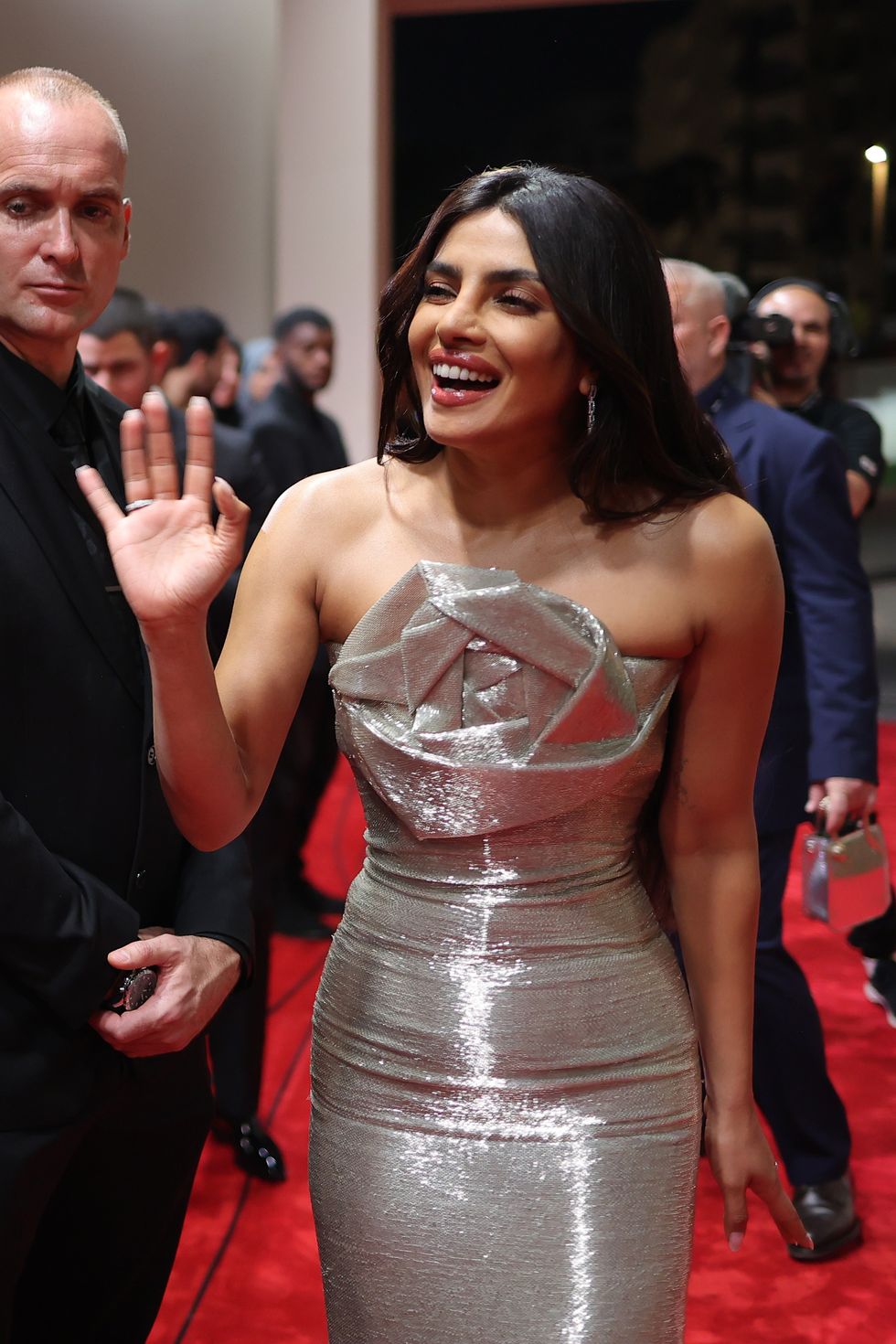 Priyanka Chopra wants to build her English film portfolio after Bollywood successGetty Images
Priyanka Chopra wants to build her English film portfolio after Bollywood successGetty Images 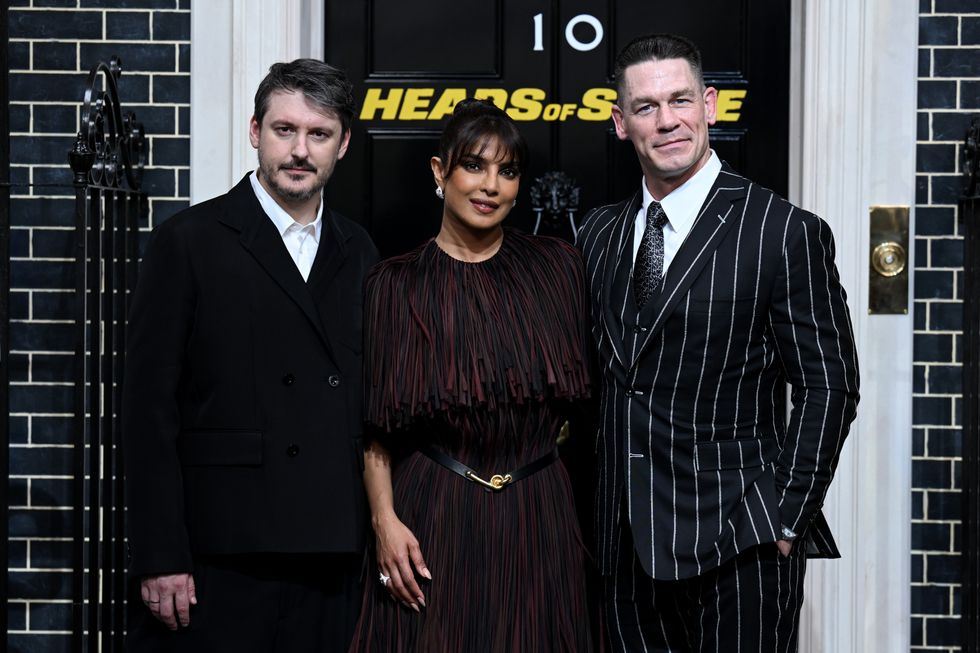 Ilya Naishuller, Priyanka Chopra and John Cena attend the special screening for "Head of State" Getty Images
Ilya Naishuller, Priyanka Chopra and John Cena attend the special screening for "Head of State" Getty Images








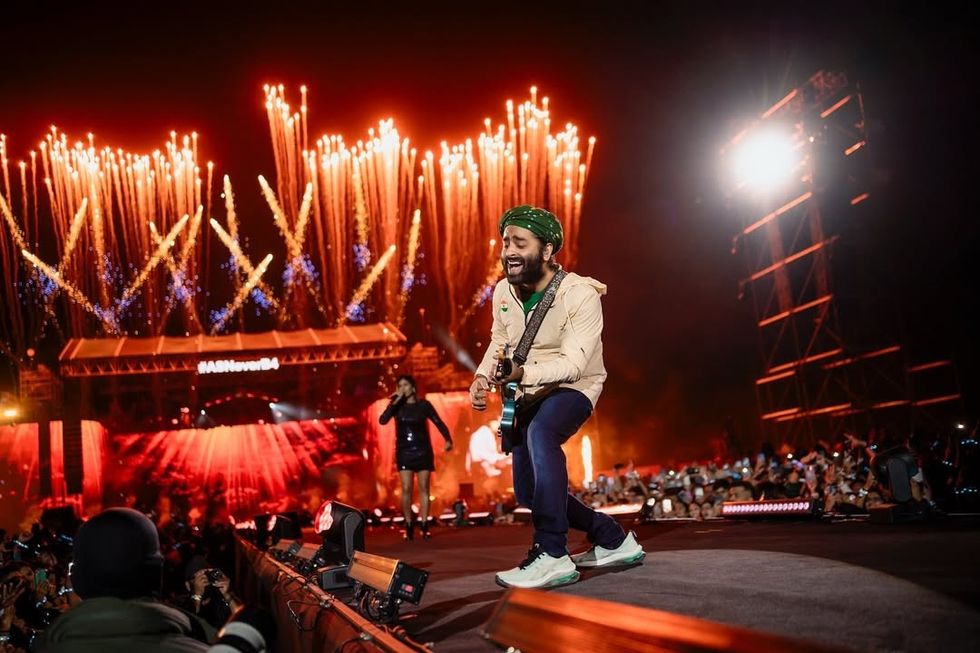 Arijit Singh performing Instagram/
Arijit Singh performing Instagram/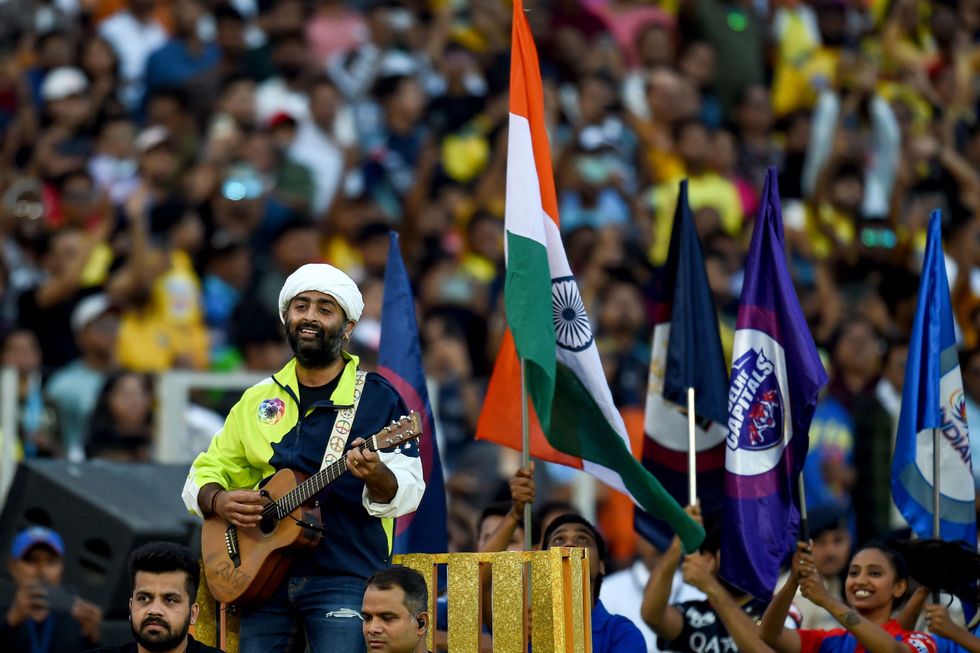 Arijit Singh clicked during a performance Getty Images
Arijit Singh clicked during a performance Getty Images 


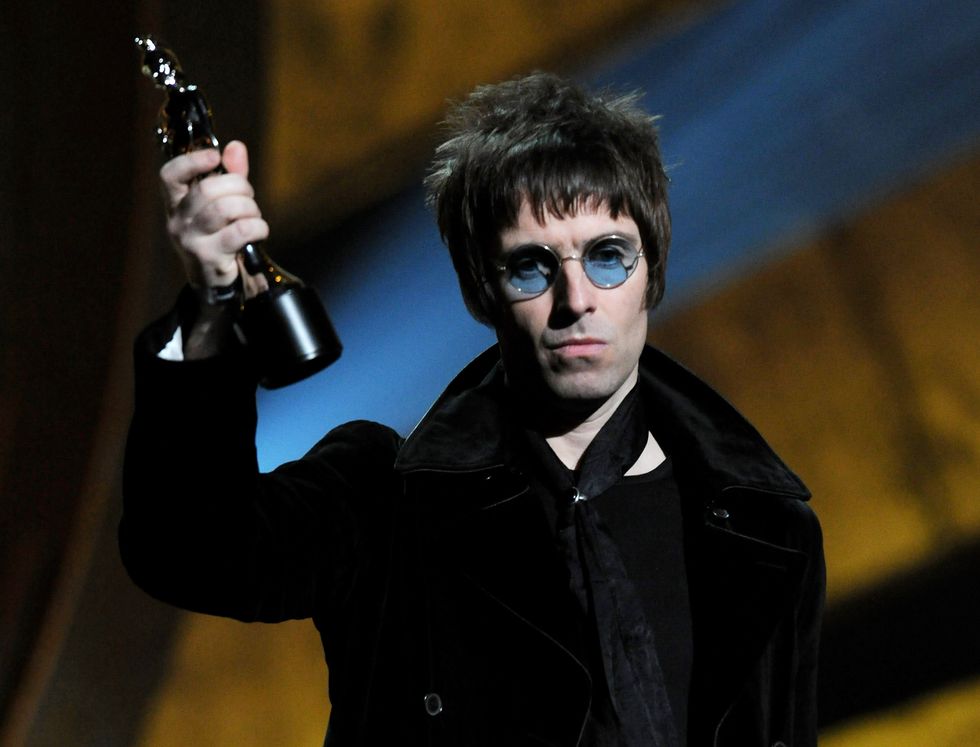 Liam Gallagher accepts Oasis' award for 'Best Album of 30 Years' Getty Images
Liam Gallagher accepts Oasis' award for 'Best Album of 30 Years' Getty Images  Liam Gallagher plays to a sell out crowd at the Universal AmphitheatreGetty Images
Liam Gallagher plays to a sell out crowd at the Universal AmphitheatreGetty Images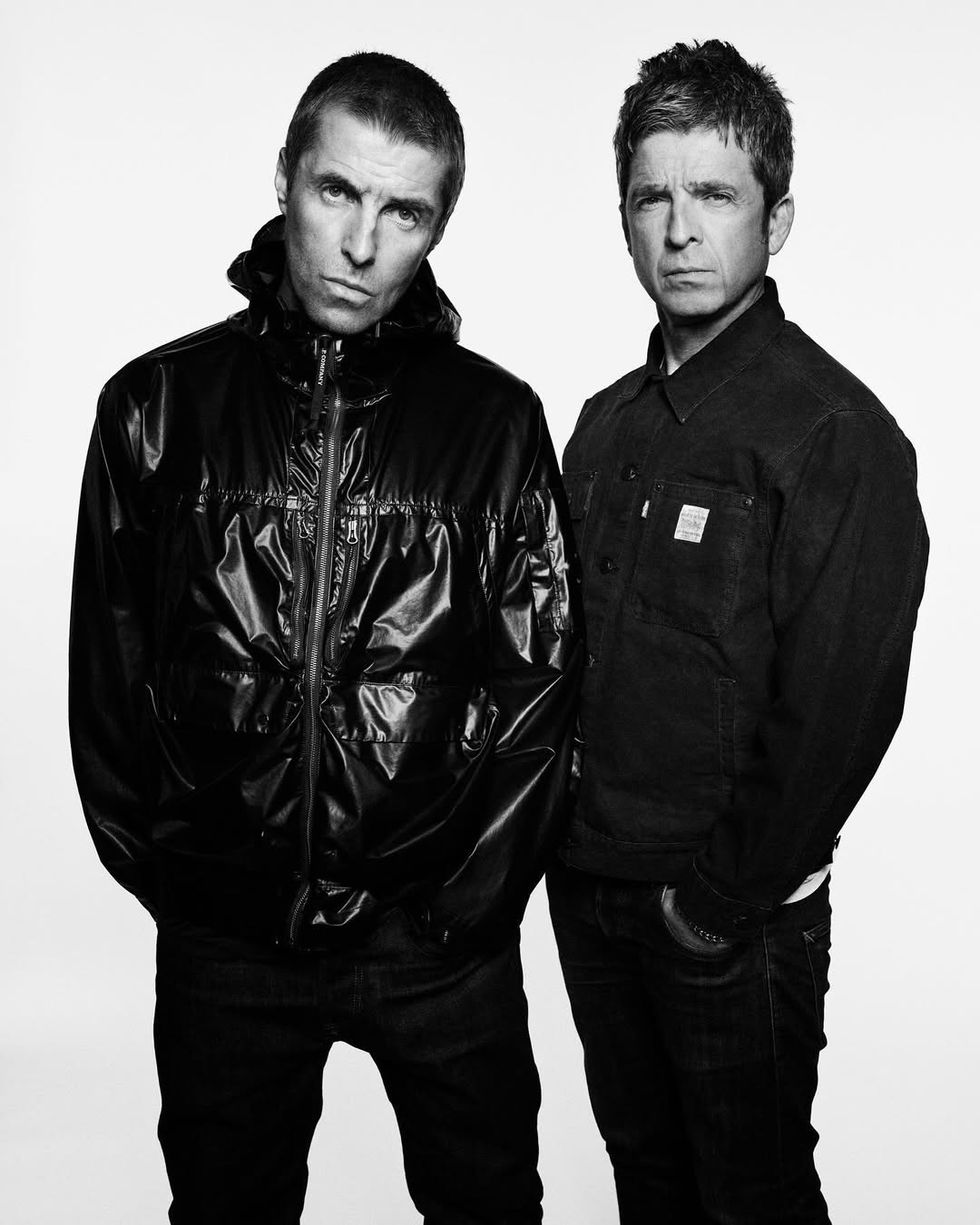 Liam and Noel Gallagher perform together in Cardiff for the first time since 2009 Instagram/oasis
Liam and Noel Gallagher perform together in Cardiff for the first time since 2009 Instagram/oasis